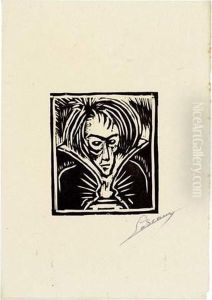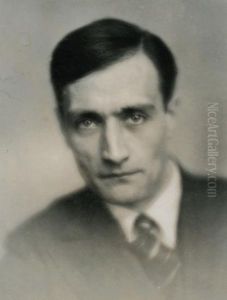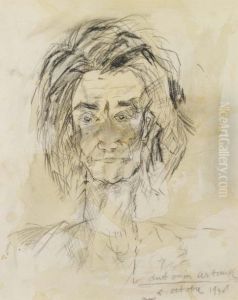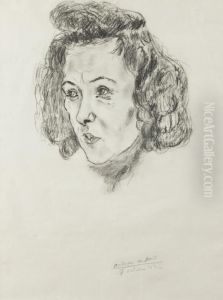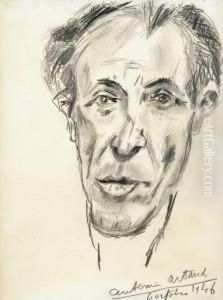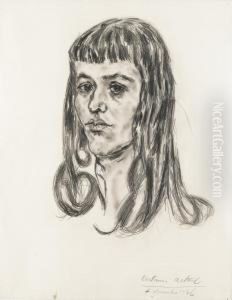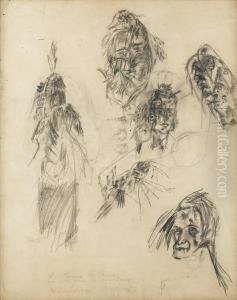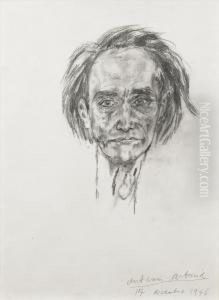Antonin Artaud Paintings
Antoine Marie Joseph Artaud, better known as Antonin Artaud, was a seminal French playwright, poet, actor, and theatre director, whose works had a profound influence on the theatre, particularly within the realms of the avant-garde, surrealism, and the absurd. Born on September 4, 1896, in Marseille, Artaud's life and career were as tumultuous and passionate as the works he produced. He is best known for his theory of the 'Theatre of Cruelty,' a form of theatre that aimed to shock the audience out of complacency, using dramatic gestures, sound, and lighting to break down the barriers between performers and audience.
Artaud's early life was marked by illness and mental instability, which plagued him throughout his days and deeply influenced his approach to theatre and art. After moving to Paris in his youth, he became associated with the surrealist movement, but his ideas soon diverged, leading him to develop his unique vision of theatre. His most significant work, 'The Theatre and Its Double,' published in 1938, elaborates on his theories, advocating for a theatre that goes beyond the traditional confines of the stage to affect deeply the subconscious of the viewer.
Despite his innovative ideas, Artaud's life was fraught with difficulties, including severe mental health issues that led to his confinement in psychiatric institutions for long periods. His experiences with mental illness and the treatments he underwent, particularly electroshock therapy, deeply impacted his writings and art, infusing them with a raw, unsettling energy. Throughout his life, Artaud was also a prolific writer, producing a vast array of essays, poems, and letters that explored themes of suffering, beauty, and the human psyche.
Artaud's influence extends beyond the theatre to affect modern performance art, film, and literature. His concepts of cruelty and the breaking down of barriers between the performance and the audience anticipated much of the performance art that would emerge in the latter half of the 20th century. Despite his relatively limited output in terms of produced plays, his writings and ideas continue to inspire artists, directors, and writers.
Antonin Artaud died on March 4, 1948, in Ivry-sur-Seine, France, leaving behind a legacy that has endured and grown over the decades. His life and work remain subjects of fascination and study, emblematic of an artist who sought to transcend the limitations of conventional theatre and art, striving instead for a profound and unsettling engagement with the depths of the human condition.
